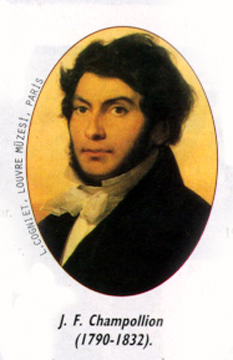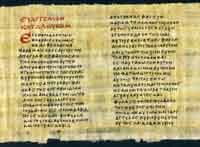 Modern Greek
Modern Greek (
Νέα Ελληνικά or
Νεοελληνική, lit. 'Neo-Hellenic', historically also known as Ρωμαίικα, lit. 'Romaic') refers to the fifth stage of the evolution of the
Greek language, i.e. the varieties of Greek spoken in the modern era. Greek is spoken today by approximately 14-17 million people, mainly in
Greece and
Cyprus but also by minority and immigrant communities in many other countries. The start of the period of the Greek language known as "Modern Greek" is symbolically assigned in the fall of the
Byzantine Empire (
1453), although strictly speaking it has been shaped since at least the 11th century. During much of this time, the language existed in a situation of
diglossia, with regional spoken dialects existing side by side with learned, archaic written forms. Most notably, during much of the 19th and 20th centuries, it was known in the competing varieties of popular Demotic and learned
Katharevousa. Today,
Standard Modern Greek, a standardised form of Demotic, is the official language of both Greece and Cyprus.
Geographic distribution Greek is the
official language of
Greece where it is spoken by about 99.5% of the population. It is also, alongside
Turkish, the official language of
Cyprus. Because of the membership of Greece and Cyprus in the European Union, Greek is one of the
23 official languages of the
European Union. Greek is officially recognised as a minority language in parts of
Turkey,
Italy and
Albania.
Official status Main article: Varieties of Modern Greek Varieties Koiné Modern Greek (Κοινή Νεοελληνική) refers to the
idiom of Demotic that was chosen as the official language of the
Hellenic Republic and
Cyprus. In English it is usually referred to as Standard Modern Greek. In its pure form it is spoken mainly in the urban parts of Greece, while its various idioms are the
vernacular language of most rural Greece and the Greek
Diaspora throughout the world. Koiné Modern Greek evolves from the Southern Demotic idioms, mainly the ones of
Peloponnese.
In short, Koiné Modern Greek is the natural continuation of
Koine Greek, an ancient Greek dialect (known also as the "Alexandrian language") which came into existence after the conquests of
Alexander the Great and the
Hellenization of the known world. Hellenistic Koiné had assimilated many elements from various different Greek dialects (such as
Ionic,
Doric and
Aeolic) but its nucleus had always been
Attic (the dialect of
Athens). Hellenistic Koine had been spoken in several different forms in the region of Greece and the Greek speaking world during the entire
Hellenistic,
Roman and
Byzantine periods, until it took the shape of Demotic in the Middle Ages.
After Greece gained independence from the
Ottoman Empire, the same dual-language status of the late
Byzantine Empire was re-adapted. The vernacular speech was Demotic (a term similar to "popular") and the official state dialect was
Katharevousa ("purified"). Demotic was the language of daily use, and the latter was an archaic form (closer to Attic), used for official documents, literature, newscasting and other formal purposes. In 1976 Katharevousa was replaced by Demotic as the official language of the Greek state. During its long history the Greek language assimilated vocabulary from various languages such as
Latin,
Italian, and
Ottoman Turkish, a substantial part of which lapsed during its long-lasting co-existence with Katharevousa.
Demotic as Koiné (Standard) Modern Greek Main article: Modern Greek phonology Phonology
Phonology Main article: Greek orthography Writing system Main article: Modern Greek grammar Examples Greek (man): <Έλληνας> [
ˈe̞liˌnas].
Greek (woman): <Ελληνίδα> [
ˌe̞liˈniða].
Greek (language): <Ελληνικά> [
e̞ˌliniˈka].
good morning: <καλημέρα> [
ˌkaliˈme̞ra].
good evening: <καλησπέρα> [
ˌkaliˈspe̞ra].
good night: <καληνύχτα> [
ˌkaliˈnixta].
good-bye: <χαίρετε> [
ˈçe̞re̞ˌte̞] (formal); <αντίο> [
aˈdiˌo̞] (semi-formal); <γεια σου> [
ˈʝasu] or <γεια σας> [
ˈʝa-sas] (informal).
please: <παρακαλώ> [
paˌrakaˈlo̞].
sorry: <συ(γ)γνώμη> [
siˈɣno̞mi].
thank you: <ευχαριστώ> [
e̞fˌxariˈsto̞].
that: <αυτό> [
afˈto̞], <(ε)κείνο> [
(e̞)ˈcino̞].
this: <αυτό> [
afˈto̞], <(ε)τούτο> [
(e̞)ˈtuto̞].
yes: <ναι> [
ne̞].
no: <όχι> [
ˈo̞çi].
generic toast: <εις υγείαν!> [
ˌis iˈʝiˌan] (literally "to health") or more colloquially: <γεια μας!> [
'ʝa-mas] (literally "our health").
juice: <χυμός> [
çiˈmo̞s̠].
water: <νερό> [
ne̞ˈro̞].
wine: <κρασί> [
kraˈsi].

 Phonology
Phonology